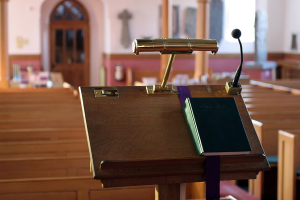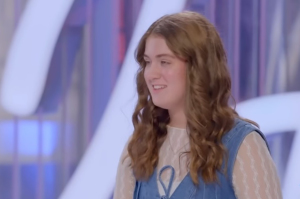Bishops Oppose 'Misguided and Unnecessary' Euthanasia Bill
''It would risk a gradual erosion of values, as a result many who are ill or dying would feel that they were a financial burden to others. The right to die would become the duty to die.''
LONDON - The Church of England and a number of Roman Catholic bishops have joined forces to urge the Parliament in the UK not to change the law on euthanasia, stating that allowing assisted suicide would undermine the protection of vulnerable people.
In a joint submission was made to the House of Lords Select Committee on the Assisted Dying for the Terminally Ill Bill, the Church of England House of Bishops and the Roman Catholic Bishops' Conference of England and Wales described the Bill as "misguided" and "unnecessary" and warned that it would damage the relationship of trust between doctors and patients.
In its conclusion, the bishops' joint submission said: "It is deeply misguided to propose a law by which it would be legal for terminally ill people to be killed or assisted in suicide by those caring for them, even if there are safeguards to ensure it is only the terminally ill who would qualify.
"To take this step would fundamentally undermine the basis of law and medicine and undermine the duty of the state to care for vulnerable people. It would risk a gradual erosion of values in which over time the cold calculation of costs of caring properly for the ill and the old would loom large. As a result many who are ill or dying would feel a burden to others. The right to die would become the duty to die.
"The Bill is unnecessary. When death is imminent or inevitable there is at present no legal or moral obligation to give medical treatment that is futile or burdensome. It is both moral and legal now for necessary pain relief to be given even if it is likely that death will be hastened as a result. But that is not murder or assisted suicide.
"What terminally ill people need is to be cared for, not to be killed. They need excellent palliative care including proper and effective regimes for pain relief. They need to be treated with the compassion and respect that this Bill would put gravely at risk."
In the letter to the chairman of the Select Committee Lord Mackay, Rev Rowan Williams, the Archbishop of Canterbury, and Cardinal Cormac Murphy-O'Connor, who is the Archbishop of Westminster said, "We believe very strongly that respect for human life at all its stages is the foundation of a civilised society, and that the long term consequences of any change in the law to allow euthanasia in limited circumstances would be immensely grave.
"This is a view shared not just within our Churches, but very widely among those of all faiths and none who share a moral outlook founded on respect for human life and the protection of vulnerable people."
The following is the complete text of the submission:
The House of Lords Select Committee on the Assisted Dying for the Terminally Ill Bill
Joint submission from the Church of England House of Bishops and the Roman Catholic Bishops' Conference of England and Wales Foundations
1. The arguments presented in this submission grow out of our belief that God himself has given to humankind the gift of life. As such, it is to be revered and cherished.
2. Christian beliefs about the special nature and value of human life lie at the root of the Western Christian humanist tradition, which remains greatly influential in shaping the values held by many in our society. These beliefs are also shared in whole or in part by many people of all faiths and none.
3. All human beings are to be valued, irrespective of age, sex, race, religion, social status or their potential for achievement.
4. Those who become vulnerable through illness or disability deserve special care and protection. Adherence to this principle provides a fundamental test as to what constitutes a civilised society.
5. The whole of humankind is the recipient of God's gift of life. Life is to be received with gratitude and used responsibly. Human beings each have their own distinct identities but these are formed by and take their place within complex networks of relationships. All decisions about individual lives bear upon others with whom we live in community.
6. For this reason, the law relating to euthanasia is not simply concerned either with private morality or with utilitarian approaches. This is one of the issues - relatively few in number but fundamental in importance - on which justice calls for a limit to moral or ethical pluralism. A positive choice has to be made by society in favour of protecting the interests of its vulnerable members even if this means limiting the freedom of others to determine their end.
Two arguments for legalising euthanasia
7. There are two considerations which are often appealed to in defence of euthanasia – individual autonomy (the so-called 'right' to die at a time of one's choosing) and welfare (the view that at beyond a certain point some lives are not worth living).
8. In recent years there has been an increasing emphasis on individual rights and self determination. In the world of medicine, this has had its impact with patient autonomy being accorded an ever higher priority in medical ethics. In the Assisted Dying for the Terminally Ill Bill, the emphasis on autonomy is evident in the way that "unbearable suffering" is given a purely subjective definition: it is suffering "...which the patient finds so severe as to be unacceptable..". The Bill requires the patient to be informed of alternative responses including palliative care, but the patient must then be helped to die if this is his or her settled wish. The Bill does however restrict its scope to those who are terminally ill, where death is likely to result "within a few months at most.". But if the principle of autonomy is being invoked to justify the Bill it is difficult to see how this restriction could be defended. The suffering caused by a non-terminal chronic illness, whether mental or physical, may equally be "so severe as to be unacceptable" to those affected. Why should euthanasia not be made available to them too?
9. At this point the second consideration - welfare - comes in. If it is not enough simply for the patient to want euthanasia, then the justification often given is that it is in his or her best interests to die. It is argued that in some situations life has no value, especially if the patient cannot look forward to any improvement and faces a slow and lingering death. But if this is the justification, there is once again no basis for restricting the scope of euthanasia to the terminally ill, or indeed to those making a voluntary request.
10. Both autonomy and welfare considerations can lead in practice to much more widespread euthanasia than was originally envisaged. The submission to this Committee from the Linacre Centre for Healthcare Ethics contains ample evidence of this in the case of the Netherlands where, as they point out " we see both an extension of euthanasia to those who are mentally ill or 'tired of life' and its extension to those who are unable to consent such as infants and young children".
The limits of autonomy
11. Neither of our Churches insists that a dying or seriously ill person should be kept alive by all possible means for as long as possible. On the other hand we do not believe that the right to personal autonomy is absolute. Patients should not be overtreated, and may reasonably refuse particular treatments as too burdensome. Having said this, life should be respected, whether in oneself or in another; the aim of giving or refusing treatment should never be to make the patient die.
12. The exercise of personal autonomy necessarily has to be limited in order that human beings may live together in reasonable harmony. While at present people may exercise their legal right to refuse treatment (although this may be overridden in special but strictly limited circumstances), the law denies that there is a legal right to die at a time of one's own choosing. The consequences which could flow from a change in the law on voluntary euthanasia would outweigh the benefits to be gained from more rigid adherence to the notion of personal autonomy. But in any case we believe (para 6) that respect for the life of a vulnerable person is the overriding principle.
13. The right of personal autonomy cannot demand action on the part of another. Patients cannot and should not be able to demand that doctors collaborate in bringing about their deaths, which is intrinsically illegal and morally wrong.
14. A serious consequence of introducing euthanasia would be to undermine the relationship of trust between doctors and patients. The value attaching to human life implies that the primary duties of doctors caring for those with terminal illness are to ensure their patients are as free from pain as possible, given the information they and their carers request or require to make informed choices about their future lives, and are supported through the personal challenges which face them. But if doctors were allowed in some circumstances to kill their patients rather than care for them, this would inexorably lead to an undermining of trust. Medical treatment would come to be regarded by the vulnerable person as potentially life threatening rather than as conferring benefit.
15. A change in the law to permit assisted dying would also change the cultural air we all breathe, and affect attitudes to older people and those with chronic illness. For example, the law permitting abortion has profoundly changed society's attitude towards the status of the foetus.
Protection of the vulnerable
16. Doctors are rightly concerned to do the best they possibly can for the actual patients in front of them, and so are the families and friends of those who are ill. It is hard to stand back from the trauma of the individual suffering and look at the wider picture; to think about the long-term implications of decisions made under the pressure of individual need. This is why the law has to play its part in providing a framework within which the medical profession can operate. A foundational guiding principle of the current legal framework is that we should not deliberately kill each other.
Palliative care and burdensome treatment
17. Behind many of the arguments in favour of euthanasia lie powerful fears, and in particular the fear that the alternative to euthanasia might be a lingering and painful death, exacerbated by futile and burdensome medical treatment.
18. When death is imminent or inevitable, the withholding or withdrawing of medical treatment that is judged futile or burdensome is both moral and legal today as in the past. Doctors do not have an overriding obligation to prolong life by all available means. Treatment for a dying patient should be 'proportionate' to the therapeutic effect to be expected, and should not be disproportionately painful, intrusive, risky, or costly, in the circumstances. Treatment may therefore be withheld or withdrawn, though such decisions should be guided by the principle that a pattern of care should never be adopted with the intention, purpose or aim of terminating the life or bringing about the death of a patient. Death, if it ensues, will have resulted from the underlying condition which required medical intervention, not as a direct consequence of the decision to withhold or withdraw treatment.
19. The hospice movement developed from a concern that people should be helped to die with dignity (that is, to live with dignity until they die). This work has enriched not only the lives of terminally ill people but also their carers, volunteers, and health professionals, who have found that caring for those who are dying can be a great source of blessing. Friendship, companionship and above all love are the key characteristics of a good death. Helping people to die well in this way is not the preserve of any particular faith. It is a profoundly compassionate and humane response to the reality of death which we all eventually face.
20. We are concerned that the lessons learned in hospices about pain control, and emotional and spiritual support should be applied throughout the health service to all dying people. This requires that medical personnel remain aware of how advice on pain control may be obtained, seek specialist help where necessary, and that adequate resources are made available for the care of sick and elderly people.
21. We believe that deliberately to kill a dying person would be to reject them. Our duty is to be with them, to offer appropriate physical, emotional and spiritual help in their anxiety and depression, and to communicate through our presence and care that they are supported by their fellow human beings and the divine presence.
Conclusion
22. It is deeply misguided to propose a law by which it would be legal for terminally ill people to be killed or assisted in suicide by those caring for them, even if there are safeguards to ensure it is only the terminally ill who would qualify. To take this step would fundamentally undermine the basis of law and medicine and undermine the duty of the state to care for vulnerable people. It would risk a gradual erosion of values in which over time the cold calculation of costs of caring properly for the ill and the old would loom large. As a result many who are ill or dying would feel a burden to others. The right to die would become the duty to die.
23. The Bill is unnecessary. When death is imminent or inevitable there is at present no legal or moral obligation to give medical treatment that is futile or burdensome. It is both moral and legal now for necessary pain relief to be given even if it is likely that death will be hastened as a result. But that is not murder or assisted suicide. What terminally ill people need is to be cared for, not to be killed. They need excellent palliative care including proper and effective regimes for pain relief. They need to be treated with the compassion and respect that this bill would put gravely at risk.



























